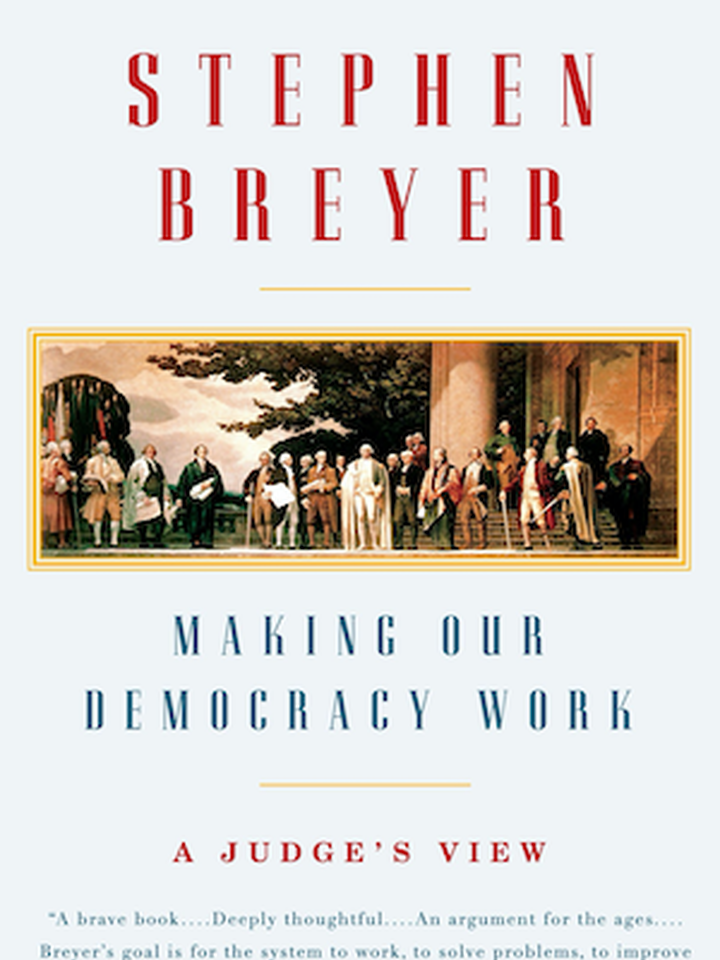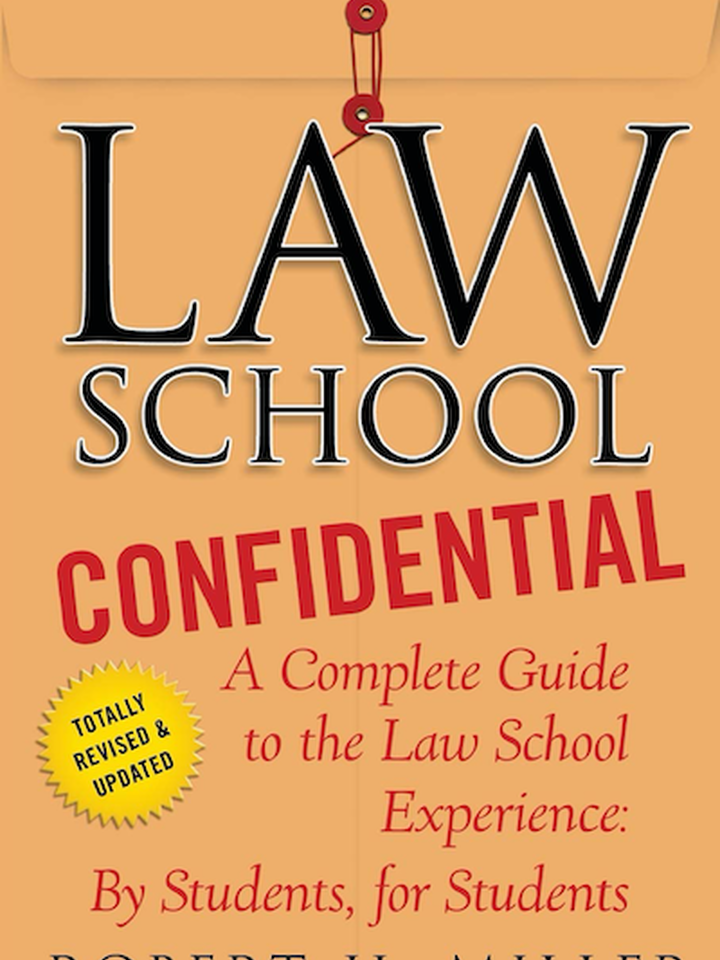Law school is an intellectually challenging and, ultimately, fulfilling experience. It will teach you to think, write, and articulate your arguments with greater clarity and precision. A legal education will provide you with analytical skills that will prove useful no matter what field you decide to pursue. Whether you are entering law school directly following graduation from an undergraduate program or leaving a career to become a student once again, there are a number of things you can do to help ensure a strong start to your first year of law school.
Separate and apart from the law school admissions process (e.g., obtaining a strong Law School Admission Test (LSAT) score, acquiring letters of recommendation, and preparing your admission application), there are things that all law school applicants and potential applicants can do to help prepare for the law school experience. This section consists of two parts:
This section consists of two parts: (1) What you can do in anticipation of applying to law school. (2) What you can do in the short period between admission and the commencement of first-year classes.
TL;DR / Key Takeaways
- Do not worry that your college or university will prevent you from getting into a good law school. Great law schools admit students from a wide range of undergraduate institutions. Focus on getting excellent grades, wherever you get your bachelor’s degree.
- Before you start the law school admission process, try and get as much exposure to the law and careers in the legal field as you can.
- Look to outside resources, like summaries, relevant non-fiction books, and friends in law school to help you prepare for the law school experience.
If you are in high school, your first priority should be your grades.
In addition, explore if any courses offered by The National Student Leadership Conference might be of interest. When it comes to selecting where to pursue your undergraduate education, choose a college or university that is the right fit for you. Do not pick a place based solely on your interest in applying to law school. Law school admission teams select students from a wide variety of colleges and universities. Harvard Law School admitted students from 185 different undergraduate institutions to make up its first-year class for the 2019-2020 academic year.1 In 2019, the first-year class at New York University School of Law came from 126 different undergraduate institutions.2 Where you choose to get your bachelor’s degree should not be determined by where you hope to get your JD degree.
If you are in college, there are no specific courses or majors you are required to take in order to apply to law school.
As an undergraduate student, you should explore those subjects in which you have a real interest. According to the Law School Admission Council, your undergraduate GPA and LSAT score are the best predictors for success in law school.3 When it comes to admissions, law schools will put considerable weight behind your GPA, so do not feel pressured to get an undergraduate degree in an area that does not interest you. Check if your college or university offers any pre-law courses or has a pre-law program. Can you take a Constitutional law, intellectual property or criminal justice course? Likewise, are there course offerings that will be beneficial to you in law school, such as logic, critical thinking, and ethics classes? No matter what, take classes with a heavy emphasis on writing, since strong writing skills are essential to succeeding in law school. While the American Bar Association (ABA) does not recommend any specific undergraduate degree or courses as a means of preparing for law school, there are certain majors acknowledged to be traditionally foundational for legal careers. History, English (again, writing is extremely important in law school), philosophy, political science, economics, and business are all considered to be traditional preparation for law school by the ABA.4
Extracurriculars as an Undergraduate
In addition to your undergraduate education, there are often extracurricular opportunities on campus that will provide greater insight into the legal field. See if you can join any pre-law societies or clubs. Pre-law societies, such as the one established by Phi Delta Phi, aim to develop a student’s knowledge of law and help a student make an informed decision about pursuing a legal career. Similarly, if your university also has a law school, see if you can do any part-time work for one of the law professors.
Look into whether your college or university has a pre-law advisor. If so, meet with this advisor early in your undergraduate career (even before you start thinking about the law school admission process) and work with this person to shape a strategic academic plan. Pre-law advisors often host question and answer sessions throughout the academic year, which are almost always worth attending especially during your junior year.
One thing that Harvard Law School recommends is that you develop relationships with your professors while you are in college.5 Your university professors are likely the people you will turn to for letters of recommendation, so it helps for them to have a real sense of who you are both as a student and as a person.
Explore whether there are any summer work opportunities available to you in the legal field. Can you shadow a lawyer or work with a legal organization? Getting hands-on experience will help you identify those aspects of a legal education that will be of particular interest to you. These interim positions will also strengthen your writing skills.
If you are about to graduate or have recently graduated from college, getting a job in a law firm can be a very informative next step.
Working as an executive assistant or a paralegal will let you see the inner-workings of a firm while also helping you save money for law school. From this unique vantage point, you will get a sense of how a legal education applies in a real-world setting. This path will give you an opportunity to work alongside lawyers on a daily basis, allowing you to see what their experience is like, how they manage clients, and how they prioritize their workload. If you have been out of school for a little while, working big firm hours is also a good way of developing the stamina that law school will require. The primary lawyer you work for could also be another person who writes one of your letters of recommendation. If you have a successful few years at a law firm, the firm might offer you a summer associate position while you are still in law school or possibly even a job after graduation.
Tips to Prepare for Law School
Once you have been admitted to one or more ABA-approved law schools, there are a number of different things you can do to prepare for law school in the months or weeks leading up to the start of classes.
If you do not have complete confidence with public speaking, taking a short-term course could be helpful, especially if your law school uses the Socratic method. Many classes in law school will require you to speak publicly in front of a large number of people, whether to answer a question or present an argument. Online legal programs that require participation in synchronous classes, like the Online Hybrid JD program at the University of Dayton School of Law, leave a student with no back row in which to hide. Similarly, a speed reading class is a great way to acquire some of the skills needed to tackle the massive amount of reading required of all first-year law school students. Even if you had significant reading requirements in college, what makes law school reading unique is its density. There is a lot of material to synthesize and you will be expected to do so quickly.
Legal overviews, like the Nutshell series and Gilbert Law Summaries, are a great resource both during your preparation for law school and while you are taking classes. These books will allow you to become familiar with various themes and terms that will come up repeatedly throughout your first year. They help break down complex concepts, like “personal jurisdiction,” so that they are more readily understandable. Familiarizing yourself with the course material before you step into the classroom will give you an edge and help you anticipate what is coming. Once classes start, there is very little time, if any, to catch up if you start to fall behind. Since law school exams make up such a large percentage of your final grade, there is no room for error. It is worth noting that these resources are intended to supplement, rather than replace, textbooks, study groups, and class attendance. Pick up one or two such books for those first-year classes that are typically the most challenging, such as Civil Procedure, and go through them.
In addition to summaries and overviews, there are a number of nonfiction books that will help provide a larger context for first-year classes, such as:
Promotion Disclosure: We may receive compensation when you click on or make purchases after clicking the affiliate links below. However, this does not influence our recommendations. Our opinions are our own.

A People's History of the Supreme Court: The Men and Women Whose Cases and Decisions Have Shaped Our Constitution
by Peter Irons
$23
AMAZON

Making Our Democracy Work: A Judge's View
by Stephen Breyer
$11
AMAZON

My Own Words
by Ruth Bader Ginsburg
$18
AMAZON

Out of Order: Stories from the History of the Supreme Court
by Sandra Day O'Connor
$15
AMAZON
Other books on the law school experience itself help give a sense of what you can expect. Here are a few:

One L: The Turbulent True Story of a First Year at Harvard Law School
by Scott Turow
$16
AMAZON

Law School Confidential: A Complete Guide to the Law School Experience
by Robert H. Miller
$17
AMAZON

1L of a Ride: A Well-traveled Professor's Roadmap to Success in the First Year of Law School
by Andrew J. McClurg
$35
AMAZON

How to Be Sort of Happy in Law School
by Kathryne M. Young
$17
AMAZON
Insight and advice from friends and family members who are attending or have recently graduated from law school can also be incredibly helpful.
How did they manage their time efficiently?
How did they prepare for law school exams?
What do they wish they had known before they started their first year?
Hearing the experiences of others will help you create a plan. Use these recommendations to determine whether to take a practice LSAT before the real thing, how much time you will need to gather your notes and study, and how to outline for an exam. Start getting into a regular schedule, so that you are exercising and enough sleep before classes start. You will reap the benefits of this consistency once the reading and law school exams start to pile up.
No matter what, be sure not to let well-intentioned words of wisdom intimidate you (and do not listen to any stories about the bar exam; there will be time for that later). Have confidence in the fact that a law school admissions team chose you based on your college academic record, exam-taking ability, and potential for academic growth.
- https://hls.harvard.edu/dept/jdadmissions/apply-to-harvard-law-school/undergraduate-colleges/
- https://www.law.nyu.edu/jdadmissions/applicants/classprofile
- https://www.lsac.org/applying-law-school/jd-application-process/jd-application-requirements
- https://www.americanbar.org/groups/legal_education/resources/pre_law/
- https://hls.harvard.edu/5-tips-for-high-schoolers-thinking-about-law-school/





